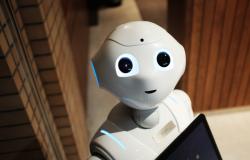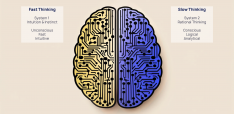Covid-19 Crisis drives demand for Automation in Healthcare – But at What Cost?

Maddie Grounds explores calls for the automation of health services and what they may mean for the NHS.
Covid-19 is an unprecedented time in our history. The global pandemic has separated us from our loved ones, financially crippled businesses, destroyed jobs and halted our very society as we knew it. Whilst the isolation period will not last forever, our NHS has already been hit with long-lasting devastation. With the UK’s health and care sectors having faced severe workforce shortages before the crisis, workers have now been pushed to their limits, tirelessly working under unparalleled levels of demand to protect and save lives.
After years of incessant underfunding for its workers and resources, the NHS is crumbling under a weight of overcrowding, a lack of beds for patients and an increasingly ageing population in need of care. Currently over 1.5 million people don’t get the care they need, with care visits between 5-15 minutes becoming the worrying norm. With over 110,000 care roles currently being unfilled, bankruptcy is an imminent path for a quarter of home care providers who cannot cope under the pressure of staff shortages and severe underinvestment.
So, what would an NHS look like if the tough grind of overworked staff was relieved by Artificial Intelligence (AI) and automation?
Global Automation Demand
Whilst the work of human staff remains incomparable, revolutionary technological developments have provided undeniable aid in times of crises including the current Covid-19 pandemic. In addition to universal communicative apps such as Facetime and cleaning robots in countries like China to disinfect the streets, powerful surveillance has been pivotal in preventing the virus. Singapore’s swift stamping of the viral spread was facilitated by police accessing an extension network of surveillance cameras, with those entering large offices being forced to have their temperature taken and report details of recent travel.
Mobile phone apps AliPay and WeChat have additionally enabled the tracking of citizens by the government, even grading them by their green, yellow, or red health status, the former of which would permit them to travel or cross checkpoints. However, whilst the third most affected country, Iran, followed in China’s technological footsteps, their mobile app has been found to source the user’s mobile phone location, rather than diagnosing coronavirus, as it had claimed to do so.
Whilst the app was labelled a ‘spy-app’ by parts of the Western Press, Oxford University is seeking to develop a similar – although voluntary – surveillance app. Professor Christophe Fraser of Oxford’s Big Data Institute argues that ‘If this mobile app is developed and deployed rapidly, and enough people opt-in to use such an approach, we can slow down the spread of the coronavirus’.
Before Covid-19, initiatives in Japan had trialled care robots for vulnerable and elderly communities. At the Shin-tomi nursing home in Tokyo, Pepper, a 4ft tall care robot developed in France, leads residents through regular exercises, monitoring corridors at night and providing care and entertainment in the daytime. Similarly, Paro, a cuddly seal made in Japan, comforts people with Alzheimer’s, whilst Tree – a moveable, sturdy screen – assist the frail in walking. Yet whilst the short-term effects of machines may be beneficial for mental stimulation, the vanishing of genuine human interchange could worsen the cognitive and emotional threshold of individuals if machine interaction becomes their norm.
The Dangers of Automation
For jobs which require operational efficiency and automated responses, technological developments can no doubt alleviate the staff pressures currently jeopardising the NHS. In fact, one NHS report has found automation could spare 5.7 million hours of General Practioner’s time and save the NHS £13 billion per year.
Yet, whilst the UK Robotics and Autonomous Systems Network has predictably assured that there will be a ‘further £6bn productivity gain’ for social care, it seems such ‘gain’ comes at the expense of the elderly, disabled and those with mental health issues who require human-based relationships for verbal and emotional communication. With depression affecting 22% of men and 28% of women over the age of 65, the core of successful care work relies on compassion and empathy which can only be achieved through actual human contact.
Additionally, the incongruence between the tech sector, which is made up of 81% of men, and the care sector, made up of 84% of women, exacerbates the risk that new care technology will not adequately meet the needs of the care community, instead seeing care interests swallowed by competitive, fast-paced tech culture.
What’s more, the claim that Artificial Intelligence (AI) systems can ‘read’ facial expressions has catalysed concerns for unreliable and discriminatory algorithmic tools. The Committee on Standards in Public Life has warned of the risk of ‘bias’, which has ‘historically’ seen officials discriminate against people from certain countries. This would naturally make the system wholly incompatible with the NHS values of universal healthcare.
The Brexit-effect
Brexit is set to exacerbate an already stretched care sector into a ‘black hole’, as new exclusionary immigration policies are expected to see a loss of 460,000 care workers. From 31st December 2020, the UK’s new immigration points-based system will require EU entrants to have a job offer from a sponsorship at a ‘suitable’ skill level as well as demonstrating good English-speaking skills. For care workers, an average salary of £16,000 and a degrading title of ‘low-skilled’ makes the ability to acquire a General Work Visa an unattainable goal for the majority.
Last October, the government pledged to invest £34 million into the cultivation of care-robots to replace the losses caused by migration restrictions, bringing into question the moral compass of those prioritising emotionless androids over the human need for compassion and emotional support for care work. Instead, of prioritising a continued right of entry for over 100,000 EU care workers, the government instead fixates on taking technological progression to an eerie level of dystopia, by replacing, rather than assisting, the actual human beings currently supporting our elderly, sick and vulnerable.
Whilst Covid-19 has globally exposed the undeniable value that arises from a balanced unity of technology and healthcare, the pandemic flairs up the potential for catastrophic effects on the elderly and vulnerable. The Government must reflect on the incomparable value of our healthcare workers during the current pandemic crisis and remember that no machine - no matter how technologically advanced - can compete with the compassion and empathy that this country needs.
This article has been provided by Maddie Grounds who is a specialist content writer and correspondent for the Immigration Advice Service; an organisation of UK and Ireland immigration lawyers.
Photo by Alex Knight from Pexels


